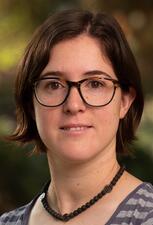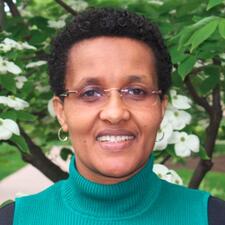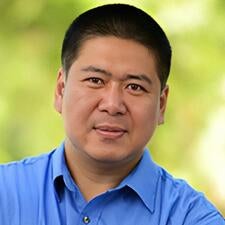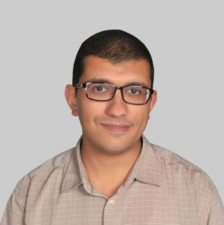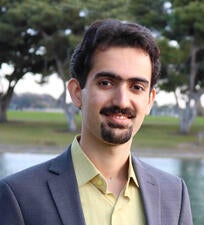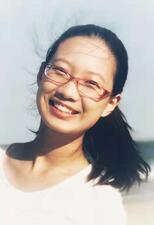Eight UC Riverside faculty members have been awarded prestigious National Science Foundation CAREER Awards to support research in areas ranging from sustainability to mental health outcomes of young Latinas.
The awards support early career faculty who demonstrate the potential to serve as academic role models and advance their organization’s mission. Research conducted with these funds is intended to form the foundation for a lifetime of leadership, integrating education, and research.
UCR’s 2023 CAREER Award recipients and the projects funded by the award are listed alphabetically below.
Ana Bahamonde, assistant professor of organic chemistry
Bahamonde’s research involves asymmetric catalysis and developing processes based on ligand-metal cooperativity to facilitate the controlled formation of highly reactive species. Her project focuses on nickel/photoredox catalysis and creating new chemical bonds, solving challenging problems in organic synthesis. The project will include high school student summer research internships and outreach programs aimed at narrowing the gender gap in STEM research and encouraging community college transfer students.
Emma Gachomo, assistant professor of microbiology and plant pathology
Gachomo’s research will investigate how potential contaminants known as chemicals of emerging concern impact the yield of soybean, a major crop in the U.S. Understanding their effects can help inform decisions related to recycled wastewater quality by water districts and growers in their efforts to ensure sustainable agricultural productivity. The research project will include mentorship and lab experience for underrepresented students, who will learn about plant-microbe interactions.
Robert Jinkerson, assistant professor in chemical and environmental engineering
Jinkerson’s project studies how artificial photosynthesis can be applied to food production. He is seeking to develop an interface between plants and artificial photosynthesis systems, engineering plants to grow more efficiently. The research includes educational and outreach activities involving undergraduate students working in labs and engaging in a competition.
Wei Liu, assistant professor of climate change and sustainability
Liu’s project strives to gain an in-depth understanding of the role played by varying ocean current circulations in climate change. This work seeks to quantify the climate impacts of the ocean circulations, which are driven by surface winds and the changing buoyancy of the sea. By separating these effects from other varying and interacting climate variables, the project is expected to advance climate predictions of storm track paths, tropical rain-belt migrations, and other important climate processes. The project will also include outreach activities at the Museum of Riverside and a summer research program for Riverside Unified School District students.
Amr Magdy, assistant professor of computer and science engineering
Magdy’s project focuses on using new technology to perform spatial data science at a large scale. His research uses machine learning to boost existing data analysis techniques so that social scientists can use location data to study different aspects of society at capabilities that were not possible before. The project scales up different types of queries to improve accuracy and allow for groupings of various spatial data types.
Kalina Michalska, associate professor of psychology
Michalska’s project studies how ethnic-racial discrimination affects mental health outcomes, like anxiety, of Latina girls and how they distinguish threat from safety. Her research uses new brain imaging methods to compare brain patterns of Latina girls from childhood through adolescence when they view social scenes and explore how repeated exposure to discrimination can alter brain structure and function trajectories. The study aims to understand community health and brain development to create more effective practices that meet the needs of families.
Erfan Nozari, assistant professor of mechanical engineering
Nozari’s project will develop mathematical models of the human brain to help lay a foundation for use of such models in clinical treatments. A large body of literature on mathematical modeling in neuroscience exists but it has had little impact on clinical treatments because most models rely on simplifying assumptions or use machine learning methods that obscure the link to the underlying biology. Nozari’s research will help bridge the gap by developing a new category of mathematical models for the brain that are both biologically meaningful and interpretable, without relying on simplifying assumptions. The research will be integrated into educational activities targeted towards high school, undergraduate, and graduate students at UCR, the local Inland Empire community, and across the globe.
Yihan Sun, assistant professor of computer science and engineering
Recent computer hardware advances have brought multicore parallel computer processing to the mainstream, which allows for many calculations or processes to be carried out simultaneously, increasing speed and reducing heat generation. However, a significant gap remains between the theory and practice of multicore parallelism. This creates difficulty in teaching and popularizing very useful parallel algorithms to a broader audience. Sun’s project will probe new parallel models and design new parallel algorithms with improved theoretical guarantees to improve practice and promote accessibility with good performances for broader audiences in education.
Editor’s Note: The article has been updated to include Emma Gamacho. Inside UCR did not receive notification until after a deadline for publication so her name was not included in the initial Aug. 21 article.
